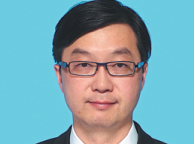Experts look ahead

Editor's note: As Hong Kong marks the 25th anniversary of its return to the motherland, China Daily has invited prominent leaders from various sectors of the community, Hong Kong people who live and work on the Chinese mainland and foreigners who live in Hong Kong to give their views on the changes that have taken place in the city since 1997, and their ideas about the city's future.
This year commemorates the 25th anniversary of Hong Kong's return to the motherland. How do you see the city's development in the past 25 years?

Henry Ho Kin-chung, founder and chairman of the Hong Kong think tank, One Country Two Systems Youth Forum
Henry Ho Kin-chung: The city has thrived in the past 25 years under the "one country, two systems" policy. Hong Kong underwent a smooth reunification in 1997. With the support of the central government, Hong Kong has enjoyed a high degree of autonomy, retained our capitalist system and hastened our integration with the Chinese mainland, which has achieved rapid GDP growth in the past 25 years. We've contributed to the motherland's impressive economic development and benefited from it in many ways. Having said that, there are still some deep-seated problems to be resolved, including high housing prices, underdevelopment of various industries, as well as insufficient social mobility.

Edward Liu Yang, a veteran mainland-born solicitor who has lived in Hong Kong for 12 years
Edward Liu Yang: Since its return to the motherland, Hong Kong has been making progress in international rankings on the rule of law. According to the Worldwide Governance Indicators Project of the World Bank Group, Hong Kong's percentile rank in respect of the rule of law was 69.85 in 1996 before the return to the motherland. With the full implementation of "one country, two systems" and safeguards provided for by the Basic Law after the return to the motherland, Hong Kong's scores in respect of the rule of law reached 74.75 in 2000 and have been consistently above 90 since 2003. Hong Kong still achieved a score of 91.35 in 2019, despite going through a spate of violence and riots at that time. Indicators published in September revealed that Hong Kong attained a score of 91.83 in 2020, demonstrating again that the city's rule of law has a solid foundation, and that our efforts in the maintenance of the rule of law are recognized internationally.

Joephy Chan Wing-yan, the youngest member of the city's seventh-term Legislative Council
Joephy Chan Wing-yan: Being 25 years old, for many people, is just the beginning of life as young adults. Like many young adults, there are bound to be uncertainties. People will start to envisage what it will be like in the next 25 years. But just like any young adults growing up, we can be assured that our motherland is always here to back us up and help Hong Kong get back on track even in the most difficult times. In light of the aforesaid, I am confident that the future of Hong Kong is bright and clear.

Stanley Sy Ming-yiu, CEO of Hong Kong biotech startup Sanomics
Stanley Sy Ming-yiu: Over the past 25 years, Hong Kong has achieved a new level of prosperity by consistently strengthening our cooperation with our motherland and the world. Indeed, Hong Kong's economy has hugely benefited from the rapid development of the nation's economy in recent years, and our relationship with the motherland is undoubtedly one of the greatest advantages that we have. However, we cannot deny that many deep-rooted contradictions do exist in Hong Kong society. It is the will of all Hong Kong people that these problems will be solved under the effective governance of the newly elected chief executive and the consistent support from our motherland.

Patrick Choi, interior designer from Hong Kong
Patrick Choi: The 25th anniversary of the establishment of the Hong Kong Special Administrative Region is a milestone for the country and Hong Kong. In the past 25 years, the HKSAR has developed very well with its traditional strengths. However, Hong Kong has not been able to fully develop an innovative technology industry, so it lacks new economic growth drivers. At the same time, people's livelihoods and housing issues remain unresolved.
- China completes main structure of world's tallest bridge
- New rare earth deposit discovered in Yunnan
- Medical insurance fund records slight surplus in 2024
- Reception held in Macao to welcome Chinese New Year
- China launches Pakistani satellite, two others
- Former deputy head of China Tobacco under investigation




































